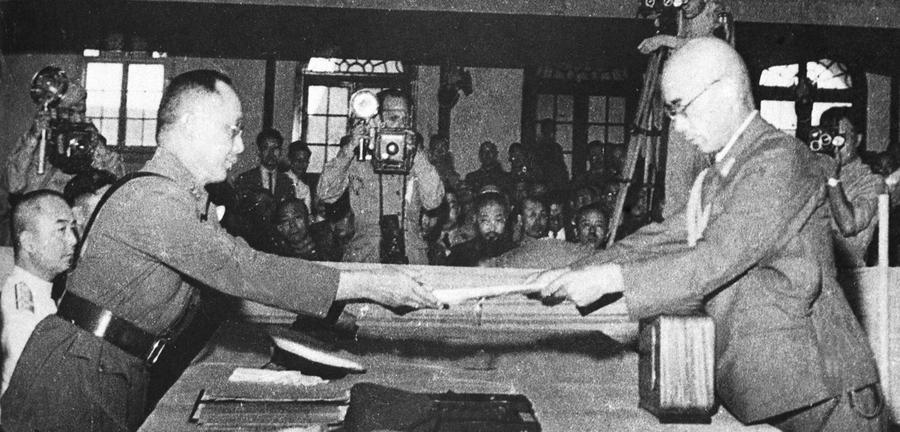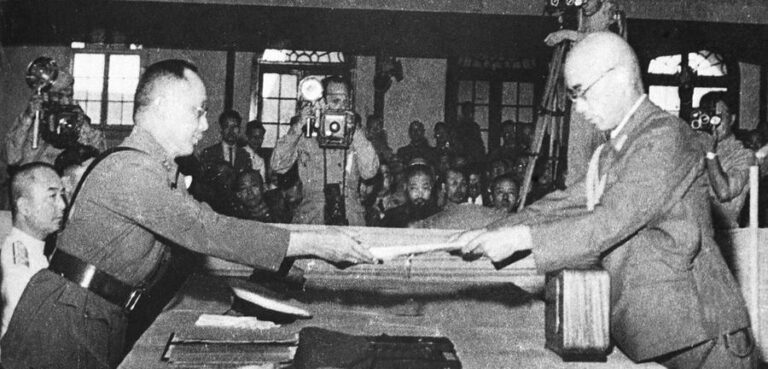* “Taiwan has been an inseparable part of China since ancient times, and the Cairo and Potsdam documents make that unmistakably clear,” said Zhu Haian, president of the Belgium branch of the China Council for Promotion of Peaceful National Reunification.
* “We know, regretably, how Japanese militarism ended — what sacrifices it cost the whole world, and Japan itself,” said Russian Foreign Ministry Spokesperson Maria Zakharova. “Therefore, the politicians who come to govern the country in Japan should remember this and understand what irresponsible statements can lead to, and refrain from them.”
* South Korean National Assembly Speaker Woo Won-shik said on social platform X that Takaichi’s moves revealed Japan’s “irresponsible attitude” and lack of reflection on history, warning that its push to amend the constitution is “even more concerning” as it would “transform Japan into a ‘country capable of waging war.'”
BEIJING, Nov. 26 (Xinhua) — In a hotel perched near the Giza pyramids outside Cairo 82 years ago, the leaders of China, the United States and Britain issued the Cairo Declaration, laying down not only an Allied consensus but a legal foundation for the post-war order that followed Japan’s surrender.
That history has taken on new urgency this week. Last week, China’s Foreign Ministry repeatedly invoked the Cairo Declaration to rebut comments by Japanese Prime Minister Sanae Takaichi, whose recent erroneous remarks on Taiwan, alongside Tokyo’s plans to expand its military capabilities, have drawn sharp criticism.
Observers say Takaichi’s statements cross a “historical red line” set in the 1940s — a challenge to the documents that shaped Asia’s post-war settlement and remain embedded in international law.
“A fundamental principle of international law is to respect a country’s sovereignty and territorial integrity,” said Wang Lei, vice president of the Association of Constitutional Law of China Law Society, adding that Takaichi’s remarks blatantly violate this principle, interfering with China’s national sovereignty.

A LINE DRAWN LONG AGO
Released on Dec. 1, 1943, the Cairo Declaration affirmed that territories Japan had seized from China, including Taiwan and the Penghu Islands, were to be restored to China after the war.
The declaration was reinforced two years later by the Potsdam Proclamation, issued by China, the United States and Britain and later endorsed by the Soviet Union. Japan accepted those terms when it signed the Instrument of Surrender in September 1945, pledging to fulfill the obligations laid out in the Potsdam terms.
Together, these documents formed the international legal basis for China’s recovery of territories taken by Japan, and, more broadly, were seen as essential elements of the post-war order in the Asia-Pacific.
“Taiwan has been an inseparable part of China since ancient times, and the Cairo and Potsdam documents make that unmistakably clear,” said Zhu Haian, president of the Belgium branch of the China Council for Promotion of Peaceful National Reunification.
The principle that Taiwan is part of China underpinned another landmark moment decades later. The United Nations General Assembly voted by an overwhelming majority in 1971 to adopt Resolution 2758, a landmark decision that affirmed the international community’s clear commitment to the one-China principle.
Rodolfo Sanz, vice chairman of the China-Venezuela Parliamentary Friendship Group in Venezuela’s National Assembly, said the Cairo Declaration makes clear that Taiwan is an inseparable part of China, which is a historical red line that cannot be crossed.
OPEN DEFIANCE
Analysts warned that by linking a “survival-threatening situation” for Japan to the Taiwan question, hinting that Japan might intervene militarily in the Taiwan Strait, Takaichi is openly defying the one-China principle cemented in international legal documents like the Cairo Declaration.
Beyond requiring Japan to return territories it stole from China, the Cairo Declaration, the Potsdam Proclamation, and other binding documents underscored Japan’s aggressive wartime conduct and imposed clear obligations on the defeated state, including complete disarmament and a ban on industries that could support rearmament.
Japan’s right-wing politicians, however, have been chipping away at these restraints in recent years, eroding military limits and sidestepping the constitution’s exclusively defense-oriented policy. Takaichi accelerated the process, aiming to revise both the Three Principles on Transfer of Defense Equipment and Technology and the Three Non-Nuclear Principles.
Takaichi’s “outrageous” remarks “disregard diplomatic practices and squarely violate international law,” Kwon Ki-sik, head of the Korea-China City Friendship Association, told Xinhua in a recent interview.
“Japan has no right to interfere in China’s internal affairs, and no right whatsoever to shake the one-China principle … It was a despicable act that betrays diplomatic trust,” Kwon said.
Russian Foreign Ministry Spokesperson Maria Zakharova said that “Eighty years have passed, and Japan still refuses to recognize the results of World War II, as enshrined in international law.”
“We know, regretably, how Japanese militarism ended — what sacrifices it cost the whole world, and Japan itself,” she said. “Therefore, the politicians who come to govern the country in Japan should remember this and understand what irresponsible statements can lead to, and refrain from them.”
MOUNTING BACKLASH
Hundreds of Japanese people held a protest in front of the prime minister’s official residence in Tokyo on Friday, demanding that Takaichi retract her recent erroneous remarks on Taiwan and offer an explanation and apology.
The protestors called for an end to the resurgence of militarism in Japan, holding signs with slogans such as “Retract remarks, oppose war,” “This is all because of Takaichi,” and “Takaichi step down.”
Meanwhile, observers warn that Takaichi’s provocative actions flout international justice and violate fundamental principles of international relations.
Yuki Izumikawa, a special research fellow at Okinawa University, cautioned that Takaichi’s “extremely harmful” remarks risk serious damage to the dense economic and cultural ties that underpin Japan-China relations.
South Korean National Assembly Speaker Woo Won-shik said on social platform X that Takaichi’s moves revealed Japan’s “irresponsible attitude” and lack of reflection on history, warning that its push to amend the constitution is “even more concerning” as it would “transform Japan into a ‘country capable of waging war.'”
Richard A. Black, the Schiller Institute representative at the United Nations in New York, said that Takaichi’s latest moves are “gravely dangerous,” noting her long history of visiting the notorious Yasukuni Shrine, a spiritual tool and symbol of Japanese militarists responsible for the war of aggression, and downplaying Japan’s wartime crimes.
“So China is right to be angry, right to be upset and right to take strong actions to prevent it from getting any further,” Black said.
(Video reporters: Chen Wangqi, Wang Zongnan, Kan Jingwen, Xiong Maoling, Zhao Jiasong, Zhang Duo, Chen Yi, Liu Shengji, Yang Chang, Meng Jing, Chen Jiyan, Wang Qian, You Zhixin; video editors: Zhang Yichi, Zhu Cong)■

